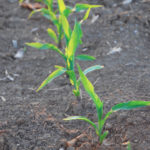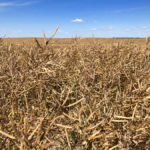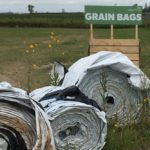Reading Time: 2 minutes Waterhemp has spread further across Ontario during the 2019 season and can now be found in eight counties (Bruce, Chatham-Kent, Essex, Haldimand, Lambton, Middlesex, Norfolk and Northumberland). A close relative of pigweed, waterhemp is a competitive annual broadleaf weed that has been found resistant in the province to four different herbicide groups (Group 9: Roundup, […] Read more

Pest Patrol: Plan to manage waterhemp in 2020
#PestPatrol with Mike Cowbrough, OMAFRA

The growing body of science for corn growers
There’s nothing easy about producing new traits and hybrids in corn, or about how to get the most out of them
Reading Time: 6 minutes When your parents got their start, farming was relatively uncomplicated. The farm season was pretty much divided into plowing, planting, cultivation and harvest. Weed management meant getting on top of quackgrass, Canada thistle and mustard, and soil organic matter was out-of-sight, out-of-mind. And transgenics was a word no one had ever heard. Some things make […] Read more

PHOTOS: Pest Patrol: Purple deadnettle and henbit control in winter wheat
#PestPatrol with Mike Cowbrough, OMAFRA
Reading Time: 3 minutes Q: I’m seeing more henbit and/or purple deadnettle in my winter wheat crop. Should it be controlled, and how? A: Henbit and purple deadnettle are often discussed interchangeably because they look similar, are from the same genus (Lamium) and have similar emergence patterns (mainly in the fall, but henbit will also emerge in spring). Both […] Read more

Bayer cancels plans to sell U.S. crop product in 2020 over safety concerns
Reading Time: 2 minutes Chicago | Reuters – Bayer AG has scrapped plans for wide sales next year of a chemical that is intended to protect U.S. crops from yield-robbing worms, citing ongoing safety concerns. The decision is the latest setback for Germany-based Bayer following its acquisition of Monsanto for $63 billion in 2018. Bayer is separately battling thousands of lawsuits claiming Monsanto’s glyphosate-based […] Read more

Avoiding chemical residues now just two clicks away
Reading Time: < 1 minute Producers can ensure the chemical sprayed on their canola or pulses won’t leave unacceptable residues by adhering to the pre-harvest interval — or PHI — found on the product’s label. Often referred to as the “spray to swath” interval, the PHI is the number of days that must pass between spraying pesticides or desiccants and […] Read more

U.S., Canada, 14 others slam EU farm product regulation at WTO
Reading Time: 2 minutes Geneva | Reuters — The United States and 15 other countries launched a broadside of criticism at the European Union on Thursday, saying its “hazard-based” approach to regulating pesticides and other “critical tools” used by farmers was damaging livelihoods worldwide. Their statement, submitted to the World Trade Organization, said the EU’s approach created great uncertainty […] Read more

Agricultural plastics not part of federal ban
Reading Time: 2 minutes The federal government’s plan to halt Canada’s consumption of single-use plastics such as shopping bags, straws and stir sticks over the next couple of years won’t extend to farm chemical containers and grain bags. Cleanfarms, the national industry stewardship body operating waste management and recycling programs for agricultural packaging, said Thursday that plastic products such […] Read more

Keep an eye on water quality
Water can play havoc with spray performance, especially with the rise in tank mixing
Reading Time: 5 minutes The 2019 growing season is now within sight and with it, another season’s worth of herbicide, fungicide and insecticide applications. Given the challenges that can arise with sprayers and their products, it’s worth revisiting the subject of water quality and the potential impact of factors such as temperature, hardness and pH on product performance. With […] Read more

Cleaning up the leftovers
AAFC has prepared a comprehensive manual on how to use “biobeds” to process pesticide sprayer rinsate
Reading Time: 5 minutes Despite careful calculation to mix just the right amount of pesticide to cover a field, there’s sometimes that little bit left over, or the rinsate which gets dumped onto a grassy or non-crop area, which can harm the environment. Up to 80 per cent of contaminants found in water bodies trace back to farms, according […] Read more

Better labels
This new initiative aims to create crop protection labels producers will actually want to use to make spraying decisions
Reading Time: 6 minutes It’s a familiar spot to find yourself in. You want to spray a new product. Or maybe you want to tank mix two chemistries that you’ve never sprayed together before. The crop is ready, the sprayer is set, but now you see there are label questions about specific rates, ground speeds, buffer zones, clean-out procedures […] Read more


